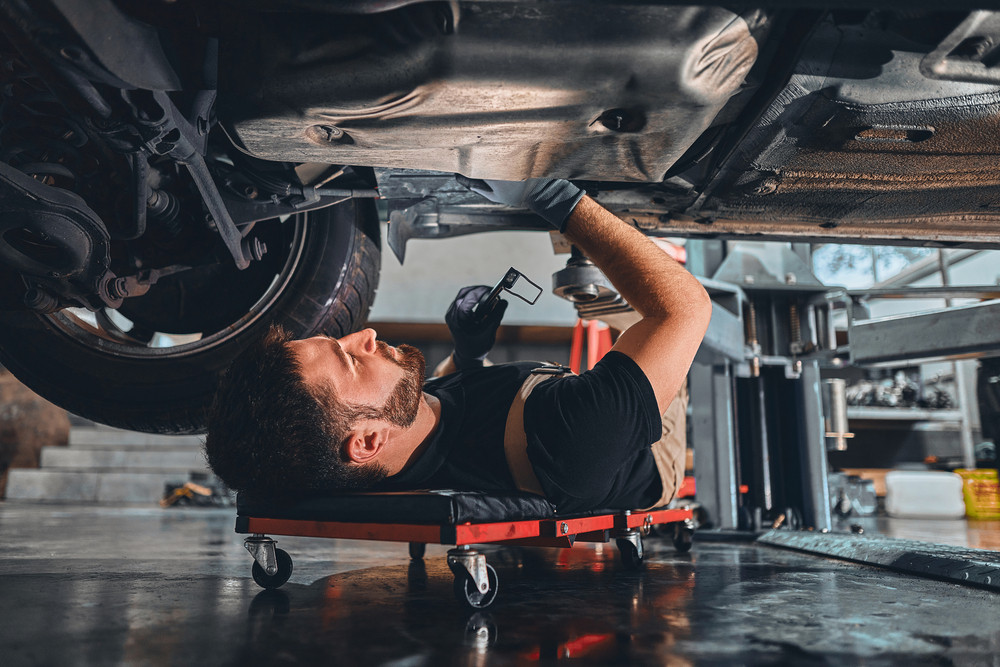
Is your car constantly in need of repairs, leaving you with a shrinking wallet and increasing frustration? It’s a situation that many of us find ourselves in, and it can be tough to decide when enough is enough.
In this article, we’ll help you answer a simple yet important question: When should you stop repairing your car and consider junking it? We’ll break it down step by step, so you can make a smart and straightforward decision about the road ahead. Let’s get started on understanding the signs and factors that should guide you in this choice.
Signs Your Car Might Be Beyond Repair
Is your car giving you more trouble than peace of mind? It’s essential to recognize the signs that your car might be beyond repair, making it a wise move to consider junking it. Here are some simple indicators to watch out for:
Strange Noises and Persistent Issues: If your car constantly makes strange, bothersome sounds or if you’re dealing with recurring problems, it might be time to think about alternatives.
Frequent Breakdowns and Increased Repair Costs: When you find yourself at the repair shop more often than not, and the bills keep piling up, it’s a clear sign that your car may no longer be worth fixing.
Unmanageable Rust or Severe Body Damage: Extensive rust or significant damage to your car’s body can be costly and challenging to repair, often making replacement a more sensible choice.
Outdated Safety Features and Failing Inspections: If your car lacks modern safety features and consistently fails inspections due to various issues, it’s an indication that it might be time to let go.
Calculating Repair Costs vs. Car’s Value
When you find your car constantly needing fixes, it’s vital to weigh the repair expenses against your car’s value. Here’s how to go about it:
How to estimate repair costs accurately: Start by getting detailed estimates from a trusted mechanic. Make sure to include parts, labour, and any additional expenses that might pop up during the repair process.
Understanding the current market value of your car: Research the current market value for your car’s make, model, and year. You can do this online or by checking with local dealerships or classified ads.
Comparing repair expenses with the car’s overall worth: Once you have both the repair estimate and the car’s market value, compare the two. If the repair costs start creeping close to or even surpass the car’s value, it might be time to consider other options, like junking your car or buying a new one. This simple comparison can help you make a financially sound decision.
Environmental and Safety Considerations
Old cars, while once reliable companions, can become a concern in various ways. Here, we’ll discuss the environmental and safety aspects to consider:
The impact of old cars on the environment: Older vehicles tend to emit more pollution, contributing to air quality problems. They often consume more fuel, which not only costs you more but also increases greenhouse gas emissions.
Safety concerns related to outdated car models: Older cars may lack modern safety features like airbags and advanced braking systems. This can increase the risk of accidents and make you more vulnerable on the road.
Australian regulations regarding car emissions and safety standards: In Australia, there are strict regulations in place to control emissions and ensure vehicle safety. Old cars may not meet these standards, leading to legal and environmental consequences. It’s essential to be aware of these rules when deciding the fate of your ageing vehicle.
Financial Implications of Junking Your Car
When you’re thinking about junking your car, it’s essential to consider the financial side of things. Let’s break it down for you:
Potential Costs Associated with Junking Your Car
Before parting ways with your old car, be prepared for some expenses. These might include towing fees, paperwork processing costs, and any outstanding loans or liens on the vehicle. However, if you opt for junk car removal services you will get free pickup, payment in exchange for your car and also the minimal paperwork.
Salvage Value and Its Effect on Your Decision
Salvage value is the money you might get for your junked car’s parts and materials. This value can vary depending on your car’s make, model, and condition. It’s worth considering this when deciding if junking your car is a financially sound choice.
Tax and Insurance Considerations When Junking Your Car
When you junk your car, you might be eligible for tax benefits or refunds. Additionally, you’ll want to cancel your insurance to avoid unnecessary costs. Ensure you inform your insurance company about the decision to junk your car, and they’ll guide you on the next steps.
Options After Junking Your Car
After you’ve made the decision to junk your old car, it’s time to consider what’s next. Here are some practical options to think about:
Public Transportation and Carpooling Options:
If you’re in a location well-served by public transportation, like buses or trains, it might be time to explore these options for your daily commute. Carpooling with friends, family, or colleagues can also help you save money and reduce your carbon footprint.
Considering Car Rental Services for Occasional Needs:
Instead of owning a car, you can rent one when you really need it. Car rental services offer flexibility and can be cost-effective if you don’t require a car on a daily basis. This way, you can have access to a vehicle when necessary without the maintenance expenses.
Tips for Buying a New or Used Car in Australia, Focusing on Budget-Friendly Options:
When the time comes to buy a new car, be sure to explore budget-friendly options. Look for affordable new models or consider purchasing a reliable used car. Keep an eye out for promotions, deals, and financing options to make your purchase more affordable.
These straightforward alternatives can help you navigate life without your old car and make the most practical choices for your transportation needs.
Properly Junking Your Car in Australia
When it’s time to say goodbye to your old car in Australia, there are some simple steps to follow for a hassle-free process.
Finding licensed car wreckers and recyclers:
To start, look for licensed car wreckers and recyclers in your area if you don’t find any then consider research on cash for cars Sydney, these types of services are also working as wreckers and removalists. . They are authorised to dispose of vehicles safely and responsibly. You can find them through local directories or a quick online search.
Understanding the paperwork and legal formalities:
When you’ve identified a wrecker or recycler, contact them to discuss the process. They will guide you through the paperwork, which often involves transferring ownership and deregistering your vehicle. It’s important to ensure you complete these legal requirements to avoid any future issues.
Ensuring you receive a Certificate of Destruction for your vehicle:
Once your car is junked, make sure you receive a Certificate of Destruction. This document is proof that your car has been properly disposed of, and it relieves you of any further responsibilities related to the vehicle.
By following these straightforward steps, you can responsibly and legally junk your old car in Australia.
Conclusion
In conclusion, knowing when to stop repairing your car and consider junking it is a crucial decision for car owners in Australia. By recognizing signs of irreparable damage, weighing repair costs against the car’s value, and considering environmental and safety factors, you can make a well-informed choice. Remember that embracing this change not only benefits you financially but also contributes to a safer and more sustainable future.



